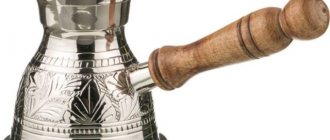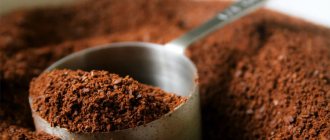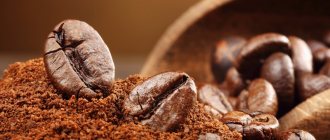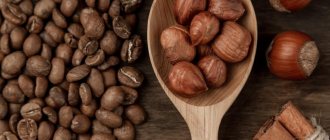The debate over whether coffee has a diuretic effect or not has been going on for several decades. Many lovers of this drink note that after drinking a cup of espresso, the urge to urinate becomes more frequent. Others do not notice this effect. It is worth understanding what effect coffee has on the body and whether it can lead to dehydration.
Diuretic effect of coffee
Contrary to the popular belief that coffee is dehydrating, normal drinking does not interfere with your body's fluid regulation. Drinking a moderate amount of the drink (3-4 regular cups containing 150 mg of caffeine along with 150 ml of water) does not affect rehydration after sports, nor does it affect hydration when consumed before sports. But coffee (the drink's diuretic effect) can affect people who are not accustomed to caffeine (or have not consumed it for at least several days). This effect occurs when consuming 250-300 mg of caffeine (about 2-3 cups of coffee). But with regular use, tolerance to this effect quickly develops - the diuretic effect in people accustomed to drinking coffee can only be noticed when taking doses of caffeine of more than 500 mg (according to various studies - at least 6 mg of caffeine per 1 kg of body weight, i.e. at least 5 cups of coffee). In this case, it is recommended to increase fluid intake to compensate for its loss.
Coffee has a slight diuretic effect
Natural coffe
Caffeine is known primarily as a part of coffee. But it is also found in tea, energy drinks, and even beans and the leaves of some plants (this alkaloid acts as a natural pesticide here). This substance is considered the most common stimulant in the world. It has a number of effects:
- supports the central nervous system;
- supports cardiac activity;
- increases the production of stomach acid, which stimulates digestion.
But it also has a slight diuretic effect - it dehydrates the body. Therefore, it is better to drink a cup of coffee with a glass of water.
Instant coffee
No caffeine is lost during the production of instant coffee. Instant powder is usually made from Robusta, which contains more of this substance (about 3 times more) than Arabica. Therefore, a drink made from it contains more caffeine than pure Arabica espresso. Therefore, the diuretic effect is similar.
Less caffeine = healthier coffee. Therefore, manufacturers claim that the instant type contains less of it than natural ground grains. But this rule applies only if the drink is prepared in the proportion of 1 tsp. powder per 250 ml of water. In this case, you will simply drink colored water.
Coffee with milk
Coffee and drinks with a high caffeine content are not included in the drinking regime. On the contrary, they remove water from the body because they have a diuretic effect. Therefore, when consuming them, it is necessary to replace the lost liquid. Milk is also not part of a proper drinking regimen, because it acts as food in the digestive tract.
Milk suppresses the effect of caffeine only on the gastric mucosa, so a drink with added milk is recommended for stomach diseases. But milk, especially cream, slows down gastric emptying, and with it the rate of caffeine absorption. Consequently, the onset of its effect is slowed down and the duration of action is prolonged. Because of this, it may seem that coffee with milk has a weaker effect than black coffee. But that's not true. The diuretic effect is present, it’s just more “stretched” over time.
Cafein free
Whether coffee is a diuretic depends on its caffeine content. Since this substance is practically absent in a decaf drink, its effect on the excretory system is minimal.
The nuances of drinking coffee as a diuretic
In the absence of contraindications, coffee can be used as a diuretic. The main thing is not to abuse this drink, follow a number of recommendations so as not to harm the body.
Recommendations
Coffee is a diuretic, but only when consumed in moderation. To get rid of excess liquid, it is recommended to drink the drink in the morning. To brew coffee beans, you can use a cezve, French press, coffee machine or coffee maker.
To enhance the effect of espresso, it is recommended to add the following components:
- cinnamon;
- lemon;
- cocoa;
- ginger;
- cardamom.
It's worth remembering that Espresso cannot be used as a diuretic on an ongoing basis. It can cause serious harm. Therefore, if you have problems removing fluid from the body, you should consult your doctor.
Who shouldn't drink
Not everyone will benefit from the diuretic effect. Drinking drinks containing caffeine is contraindicated in the following cases:
- kidney diseases;
- pathologies of the cardiovascular system;
- childhood;
- pregnancy;
- atherosclerosis;
- sleep disorders;
- high blood pressure;
- tendency to allergic reactions;
- problems in the gastrointestinal tract;
- elderly age;
- nervous disorders.
In addition, it is contraindicated to drink coffee on an empty stomach and immediately after eating. It is recommended to wait at least half an hour after eating to prevent negative effects on the gastrointestinal tract.
A cup of espresso or Americano can cause frequent urination. This effect is due to the presence of caffeine in the composition. True, such changes are not always observed. If a person drinks such drinks regularly and in large quantities, the body begins to get used to the effects of a natural stimulant and stops responding to it. In this case, fluid begins to accumulate in the body, rather than being removed from it. Therefore, the opposite effect is observed - swelling appears.
Who shouldn't drink coffee?
Coffee is not only a natural stimulant of the central nervous system, but also a blocker of adenosine receptors, important chemical compounds involved in sleep. At the same time, it increases the level of adrenaline, dopamine, and glutamate. These reactions may cause:
- anxiety;
- nervousness;
- excitation;
- outbursts of rage;
- increase in heart rate.
Therefore, people suffering from heart disease should avoid consuming the invigorating drink. Pregnant women, people with hypersensitivity to caffeine, and patients with high blood pressure should avoid drinking coffee. After consuming it, they experience rapid heartbeat, tremors, and other unpleasant symptoms. In pregnant women, it can cause fetal health problems - gradual dependence, problems with insomnia in the future.
Breastfeeding women are recommended to use it at least 3 hours before feeding.
Caffeine has an irritating effect on the gastrointestinal tract and stimulates the production of stomach acid. Therefore, it should be avoided by people who have stomach problems or intestinal disorders (high acidity, inflammation).
Coffee is not recommended for heart disease
Diuretic effects of caffeine
In cases of moderate consumption of coffee (in the morning and no more than twice a day), people experience characteristic signs of a diuretic effect. If you significantly increase the dose of caffeine, the diuretic response either weakens or disappears altogether, which is explained by the body becoming accustomed to the coffee effect. When the consumption of large portions becomes constant, in addition to the diuretic, the beneficial effects also disappear, which are replaced by not the most pleasant consequences: increased excitability, increased blood pressure in hypertensive patients, anxiety and restlessness, which is caused by the effect of caffeine on the central nervous system.
Negative effects of coffee
Because caffeine is a diuretic, people who regularly drink coffee without replenishing fluids are at risk of dehydration. This drink has also been shown to have a laxative effect in about 30% of people. Scientists do not yet know the exact mechanism for this property, but it is believed that the stimulating effect of caffeic acid on the intestines plays a role. Therefore, it is recommended to snack on an invigorating drink, since food slows down its passage through the stomach and digestive tract into the bladder. It is also better to choose stronger roasted beans, which are less acidic and contain less caffeine.
The main component of the invigorating drink is one of the 3 causes of eyelid twitching. A study conducted by New York University found that it stimulates serotonin and norepinephrine, chemicals that transmit impulses that can increase the reactivity of muscles and nerves. For people prone to this problem, it is advisable to eliminate coffee and replace it with caffeine-free liquids.
Scientists also point to its ability to disrupt sleep, worsen its quality, and shorten its duration. Drink consumption affects the circadian rhythm - an approximately 24-hour interval within which sleep and wakefulness alternate. This prolongs the time it takes to fall asleep. Since sleep is essential for cognitive (thinking) functions, any potential benefit from caffeine is immediately inhibited by a lack of adequate rest.
Although these adverse effects may not occur in all cases, since caffeine sensitivity varies from person to person, it is best to avoid consuming the drink after 4:00 p.m. This will help prevent any negative effects on your sleep.
What actually holds water?
When they say that coffee retains water in the body, the problem is not always the coffee itself. Not everyone likes the taste of pure coffee without additives, so they try to enrich it. To do this, sugar, cream, milk and various syrups are added. Moreover, instant drinks containing large amounts of sugar and dry cream are sold. Such coffee can indeed retain water in the body, contains a lot of fast carbohydrates and does not have any positive effect.
In its pure form, it contains virtually no calories, respectively, fats and simple carbohydrates, which reduce all beneficial properties.
Often, two or three tablespoons of sugar are placed in one cup, which, in turn, amounts to 10-15 g of simple carbohydrates. It is known that 1 g of carbohydrates retains about 4 g of water, which provokes the appearance of edema. Few people limit themselves to one mug of coffee, drinking three or four or even more per day. Milk and cream also promote fluid accumulation. A few cups of cappuccino with sugar retains quite a lot of water, and many will blame the coffee for this.
Scientists' opinions on this issue vary, since the effect of the drink is ambiguous and depends on many different factors. As it turned out, a moderate amount of caffeine does not remove excess fluid, and to get the maximum benefit from it, you need to monitor the quality of the product and the number of cups you drink.
The consumption of any foods and drinks should be moderate, only in this case they will be beneficial and will not have a detrimental effect on a person.
Daily coffee intake for a person
Recommended topic:
Diuretics for weight loss
Drinking large amounts of coffee has harmful effects on health. At the same time, measurement in cups is not accurate, since some people like the drink strong, while others, on the contrary, dilute it with water. To do this, you should calculate the approximate amount of caffeine consumed at a time. The norm for an adult will be in the range of 100-200 mg. The maximum number of such servings per day should not exceed two or three. Depending on the type of coffee, its concentration in 100 ml of liquid varies:
- boiled in Turk – 120-170 mg;
- espresso – 80-130 mg;
- cappuccino – 70-80 mg;
- instant coffee – 60-100 mg.
Using this list, each person will be able to independently determine the required amount of coffee for daily consumption. During pregnancy, it is recommended to limit the intake of the drink.
Optimal amount for diuretic effect
In order for an adequate diuretic response of the body to coffee to appear, you should drink an amount equal to the daily norm per day. Exceeding this indicator will lead to an increased concentration of caffeine in the body, and therefore the process of urination will slow down.
Is coffee a diuretic drink or not: the effect of strong, instant and milk coffee on the body
Coffee - some people cannot imagine the morning without this elixir of life. A cup of an invigorating drink energizes, simply helps you wake up and be charged with optimism for the day. But sometimes a diuretic effect is noted. Let's try to figure out whether this is true or not, and what the diuretic properties of the drink depend on.
Effect of coffee on the body
The most important substance contained in coffee is the alkaloid caffeine.
Coffee affects the functioning of the heart, brain and kidneys
The result of its impact:
- on the cerebral cortex - mental work is activated, concentration and short-term memory improve;
- on heart rhythm - the strength and frequency of heart contractions increases;
- on blood supply - constricts blood vessels in the abdominal organs, skin, mucous membranes;
- on urination - a vasoconstrictor effect: more blood per unit of time is filtered in the kidneys, resulting in a greater urine output.
Let's consider what influences the listed effects, whether it affects everyone equally or whether there is a dependence on the method of application and dose. Scientific studies have been conducted on caffeine-containing products, but the findings are mixed. Sensitivity to caffeine can be either high or low. Coffee will only turn into a diuretic for you under certain conditions.
Coffee with milk does not cause a strong diuretic effect
When does coffee become a diuretic?
The listed phenomena are typical for people with hypersensitivity who do not often drink coffee. With regular coffee consumption, the body adapts, and then caffeine has a weaker effect.
To enhance concentration, coffee lovers need not 1-2, but 3-4, or even more cups of strong drink per day. At the same time, the diuretic effect is noticeably reduced, and even a morning cup does not affect diuresis. Afterwards you don’t want to run to the toilet.
Caffeine addicts are those who can fall asleep normally after drinking a cup of the drink before bed.
On the contrary, excess caffeine retains fluid in the body and swelling appears. In order for the water to come out and the body to be cleansed, it is recommended to drink 2-3 cups of coffee per day, no more.
- Drink one or two cups. The higher the dose of caffeine, the less the diuretic effect. The basis is the same mechanism as described above. The body adapts to constant exposure to vasoconstrictor substances and does not react as usual.
- You drink strong coffee without milk. Not all categories of coffee drinks have the same diuretic effect. For example, coffee with milk has a reduced caffeine content. In addition, caffeine binds to milk proteins and is therefore eliminated from the body more slowly, which reduces the diuretic effect of drinking coffee. This does not apply to large cups of cappuccino or latte, the diuretic effect of which is associated with drinking more liquid.
- But decaffeinated coffee is not an exception. There is still caffeine in such a drink, the phrase about its absence is nothing more than a ploy by advertisers. Its mass fraction should not exceed 0.3%; this species has not become harmless either.
Often, the Robusta variety is used to make instant coffee, which contains more caffeine than aromatic Arabica and is cheaper.
Effect of instant coffee
The raw materials for this type are rejected grains from plantations, waste after sorting and roasting.
Ground natural grains are poured with hot water, kept under pressure of 15 atmospheres and then dried at high temperature or the resulting mass is frozen.
Then they are treated with fragrances, flavors, natural or synthetic oils, trying to give the substandard taste and aroma of a natural drink. Instant coffee is also a diuretic.
The conclusion follows: in any form, coffee has pronounced diuretic properties.
To reduce the excessive effect of caffeine on the body, tissue hypoxia, drowsiness, and blood thickening as a result of dehydration, it is recommended to drink a glass of water after each cup. This will also prevent dark plaque from settling on the tooth enamel and restore the sensitivity of taste buds, reduce the acidity of gastric juice and a possible jump in blood pressure.
Coffee is a drink that helps you cheer up and recharge with vitality. But excessive consumption leads to health problems. We also recommend reading for ideas on how to replace coffee in the morning.
Source: https://turka.life/zdorove-i-krasota/mochegonnyj-napitok.html











